Soy is a confusing ingredient for people who live a gluten free lifestyle because there is a lot of misinformation out there. The truth is that it can be a great option for a gluten free diet.
Soy is naturally gluten free and can be completely safe to eat on a gluten free diet, providing you know what to look out for. It’s also important to understand which soy containing products are safe and which ones are not.
In this guide we’re going to answer the question ‘is soy gluten free’ and clear up the confusion surrounding soy on a gluten free diet. Keep reading to learn more or use the table of contents to jump around.
Are you new here? Here's tips to live gluten-free without the stress!
- How to eat out SAFELY when you’re gluten-free
- How to make ANY recipe gluten-free
- How to TRAVEL gluten-free and still have fun
…get valuable support in my EXCLUSIVE Facebook community “Stress-Free Gluten-Free” by clicking here!
The gluten-free guide below is based on personal experience and research. Always be sure to discuss any medical changes with your doctor for your personal medical needs. Additionally, this post contains affiliate links. As an Amazon Associate I earn from qualifying purchases. My full disclosure isn’t that interesting, but you can find it here.
Unveil the keys to gluten-free success!
Get customized recipes, tips, and resources that match your unique vibe.

Is Soy Gluten-Free?
Yes! Soy and the protein derived from soybeans is naturally gluten free. That being said, there are some concerns surrounding soy that you need to be aware of.
- Soy is often grown in crop rotation with wheat, which makes it susceptible to cross contact.
Cross contact, in the context of crop rotation, refers to the possibility of a grain or seed from one crop ending up in another crop. This can happen because of things like shared harvesting equipment, proximity to other gluten containing crops like wheat, rye or barley, or the use of shared storage facilities like grain silos. - Not all soy-based products are gluten free. Some food products that are made with soy also contain gluten. This gives the impression that all soy based foods contain gluten, which is not the case at all.
If this all feels a little overwhelming, don’t worry! We’re going to unpack the science, discuss many common soy food products and explain what’s safe to eat on a gluten free diet. With this guide in hand, you’ll be able to confidently and safely choose soy foods!
What is soy?
Soy is a legume. Legumes like soy are an affordable and nutritious way to add plant-based protein to your diet.
Soy foods are rich in nutrients including B vitamins, fiber, potassium, magnesium, and high-quality protein. Unlike some plant proteins, soy protein is considered a complete protein, containing all nine essential amino acids that the body cannot make which must be obtained from the diet.
Is gluten free soy free?
Since gluten and soy are not the same thing, an ingredient or food product can be gluten free, soy free or both. Understanding the difference is important because people can have an allergy or intolerance to one or the other or both.
Gluten is a protein commonly found in the grains wheat, rye and barley, while soy is a legume. Since wheat, rye, barley and soy are all crops, it’s not uncommon for people to get them confused.
Reading the labels and ingredient lists is the best way to determine whether a product is free of gluten, soy or both. Since both wheat and soy are considered Top 9 allergens, both will be listed under the allergens section of a label.
Is it okay to eat soy with celiac disease?
YES! It is okay to eat soy with celiac disease as long as you do not also have a soy allergy or soy intolerance. While other food intolerances may coexist with a celiac disease diagnosis (most commonly lactose), in most cases those foods can be reintroduced once intestinal damage has healed and the patient continues to adhere to a strict gluten free diet.
Some studies have actually shown that soy was successfully reintroduced into diets of children with celiac disease with 100% success (albeit with a small sample size).
There is a lot of misinformation about soy. In reality, soy has a ton of nutritional value and is really versatile. It’s a high-quality protein since it contains all the essential amino acids, it has antioxidant properties, and lowers the risk of many cancers.
The many benefits of soy make it an excellent nutritional option for people with celiac disease.
Is soy flour gluten free?
Soy flour can be a tricky ingredient in terms of its gluten free status. Just like other single flours, soy flour should be gluten free but that isn’t always the case.
If the soy is grown or processed with gluten then the soy flour will subsequently contain gluten. In fact, some studies found soy flour to contain astronomical amounts of gluten.
The high protein content of soy flour actually improves the texture of gluten free bread, making it a favorite for gluten free bakers.
The safest and easiest way to ensure that the soy flour you’re choosing is gluten free is to look for a certified product. Ingredients that are certified gluten free are third-party tested to confirm that the amount of gluten meets the requirement for gluten free set forth by the FDA.
Understanding gluten free labeling and certification is your best defense when choosing ingredients on a gluten free diet. Once you understand that, shopping becomes much less difficult!
If you want to discover all the great gluten free flour options, check out my Ultimate Guide to Gluten Free Flour.
Does soy sauce contain gluten?
Yes, soy sauce does contain gluten. Unfortunately, products like soy sauce are what makes the gluten free status of soy so confusing. Traditional soy sauce is made by fermenting soy and wheat.
It’s actually the wheat that makes soy sauce a gluten containing ingredient, not the soy. Many soy sauces actually have more wheat than soy as wheat is the first ingredient listed on their labels!
There are plenty of great gluten free soy sauce options as well as a variety of alternatives. Check out this helpful post to learn all about soy sauce.
Does tofu contain gluten?
Tofu is made from soy milk and is a great source of protein, which makes it a staple in many vegan and vegetarian households. Most plain tofu is also gluten free!
Where you have to be very careful is with flavored tofu. Many of the flavored tofu options contain soy sauce which often contains gluten.
Check out my article Is Tofu Gluten-Free? + Best Gluten-Free Tofu Brands to learn more!
Is soy milk gluten free?
Soy milk is generally gluten free, but just like with tofu and soy flour, not every brand is gluten free. Some soy milk contains other ingredients or additives that are not gluten free. These gluten-containing ingredients make the soy milk unsafe for people with gluten allergies.
Silk Soy Milk is my favorite gluten free brand. It’s certified gluten free so I know it’s completely safe to consume, and it’s readily available pretty much anywhere you buy milk. It’s also Non-GMO and lactose free as well.
Is soybean oil gluten free?
Yes, Soybean oil is naturally gluten-free. This is because soybeans, the source of soybean oil, do not naturally contain gluten. It is important though to keep in mind that the way the soybean oil is processed has the potential to lead to cross contact.
Always carefully read the ingredients list and look for allergens. Gluten free labels and certification are important in this case.
Is soy lecithin gluten free?
Soy lecithin is a food additive extracted from raw soybeans and is widely used in the food industry as an emulsifier, or lubricant. It is also used as an antioxidant and flavor protector. Lecithin essentially protects your food from degrading and improves the texture and consistency.
Soy lecithin is considered gluten free as long as it is processed in a way that does not permit cross contact.
Despite the confusion around soy you can see from this guide that it can be a great gluten free option. There is plenty of scientific evidence to show that so long as you’re choosing certified gluten free products, soy can be part of a complete and nutritious gluten free diet.
Unveil the keys to gluten-free success!
Get customized recipes, tips, and resources that match your unique vibe.

Curious about whether other foods fit on a gluten free diet?
- Is Sushi Gluten Free?
- Is Almond Milk Gluten Free?
- Is Sake Gluten Free?
- Top Gluten Free Dairy Free Coffee Creamers
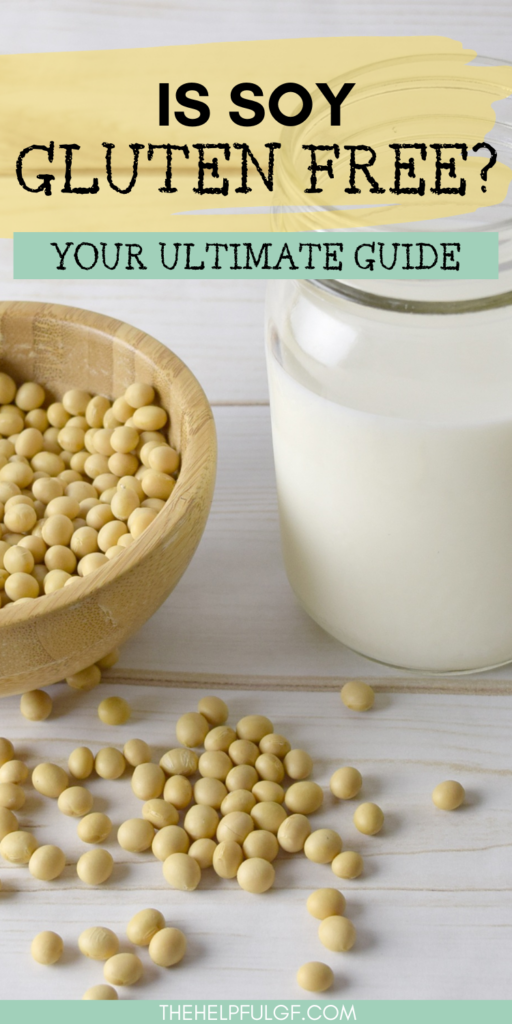


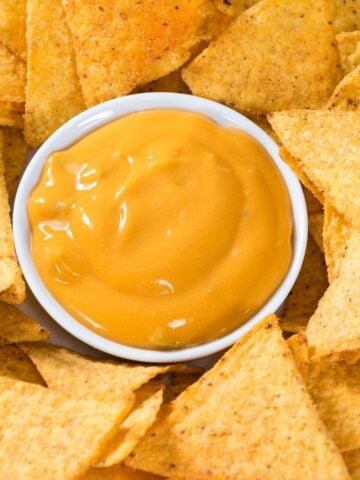
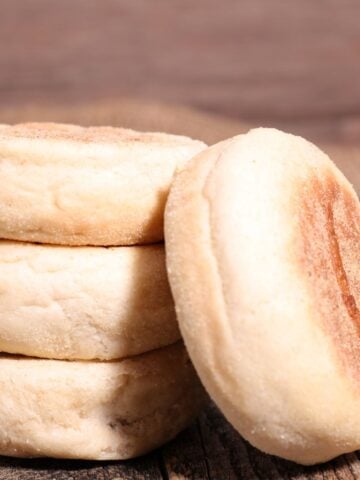
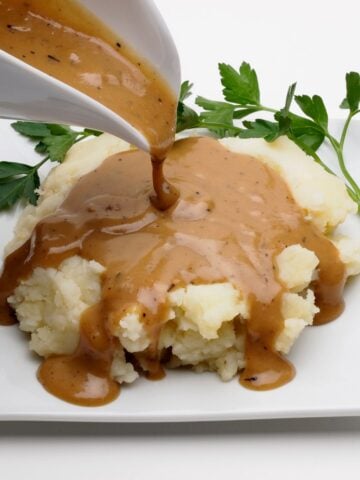
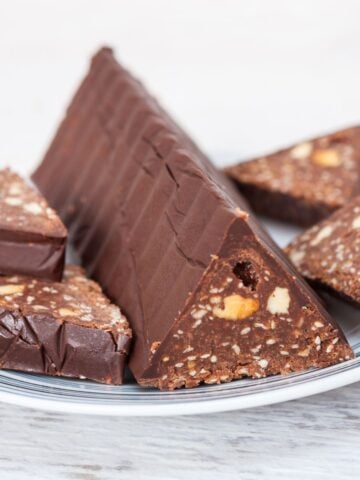
Leave a Reply